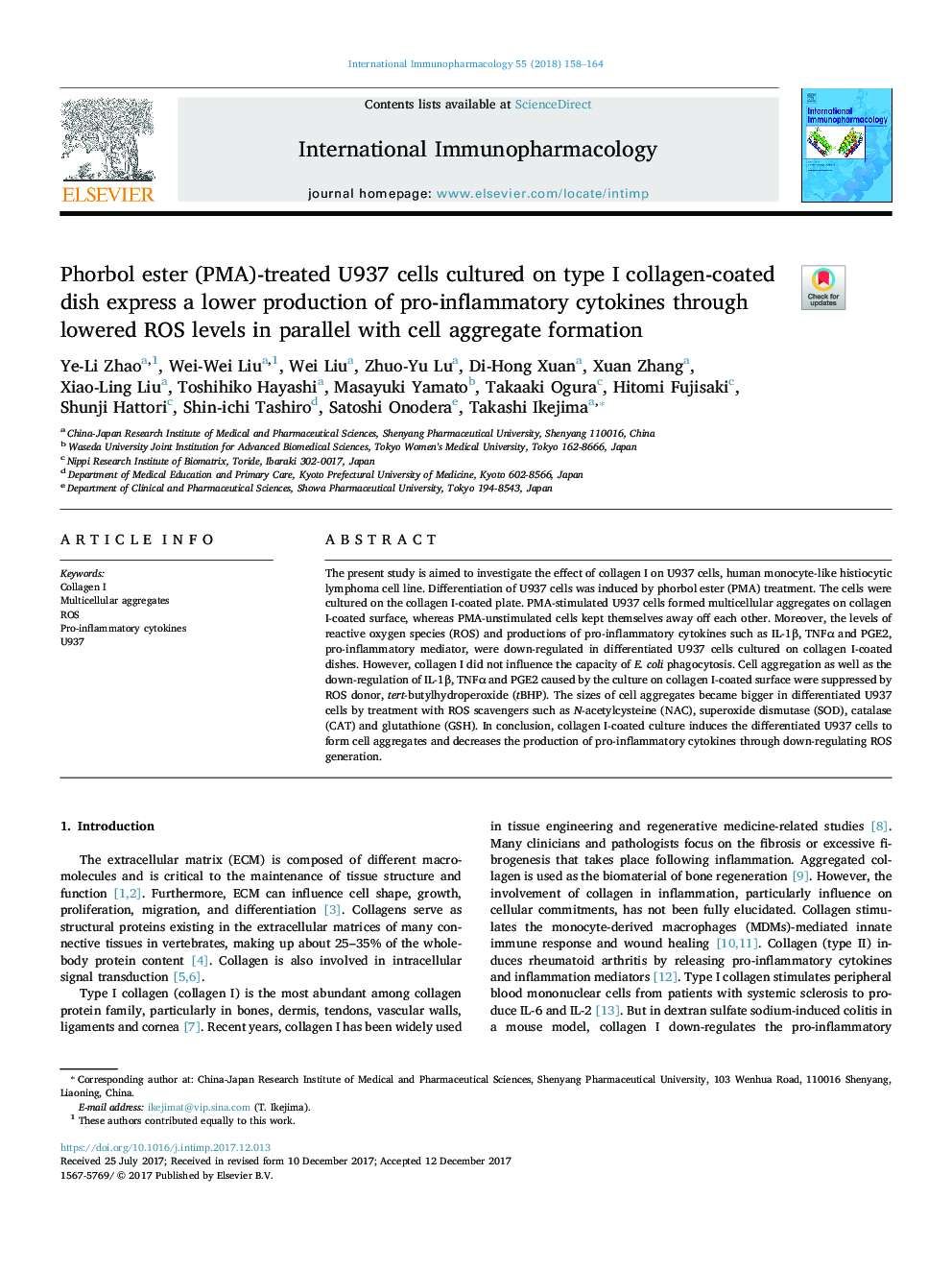| Article ID | Journal | Published Year | Pages | File Type |
|---|---|---|---|---|
| 8531446 | International Immunopharmacology | 2018 | 7 Pages |
Abstract
The present study is aimed to investigate the effect of collagen I on U937 cells, human monocyte-like histiocytic lymphoma cell line. Differentiation of U937 cells was induced by phorbol ester (PMA) treatment. The cells were cultured on the collagen I-coated plate. PMA-stimulated U937 cells formed multicellular aggregates on collagen I-coated surface, whereas PMA-unstimulated cells kept themselves away off each other. Moreover, the levels of reactive oxygen species (ROS) and productions of pro-inflammatory cytokines such as IL-1β, TNFα and PGE2, pro-inflammatory mediator, were down-regulated in differentiated U937 cells cultured on collagen I-coated dishes. However, collagen I did not influence the capacity of E. coli phagocytosis. Cell aggregation as well as the down-regulation of IL-1β, TNFα and PGE2 caused by the culture on collagen I-coated surface were suppressed by ROS donor, tert-butylhydroperoxide (tBHP). The sizes of cell aggregates became bigger in differentiated U937 cells by treatment with ROS scavengers such as N-acetylcysteine (NAC), superoxide dismutase (SOD), catalase (CAT) and glutathione (GSH). In conclusion, collagen I-coated culture induces the differentiated U937 cells to form cell aggregates and decreases the production of pro-inflammatory cytokines through down-regulating ROS generation.
Related Topics
Life Sciences
Immunology and Microbiology
Immunology
Authors
Ye-Li Zhao, Wei-Wei Liu, Wei Liu, Zhuo-Yu Lu, Di-Hong Xuan, Xuan Zhang, Xiao-Ling Liu, Toshihiko Hayashi, Masayuki Yamato, Takaaki Ogura, Hitomi Fujisaki, Shunji Hattori, Shin-ichi Tashiro, Satoshi Onodera, Takashi Ikejima,
